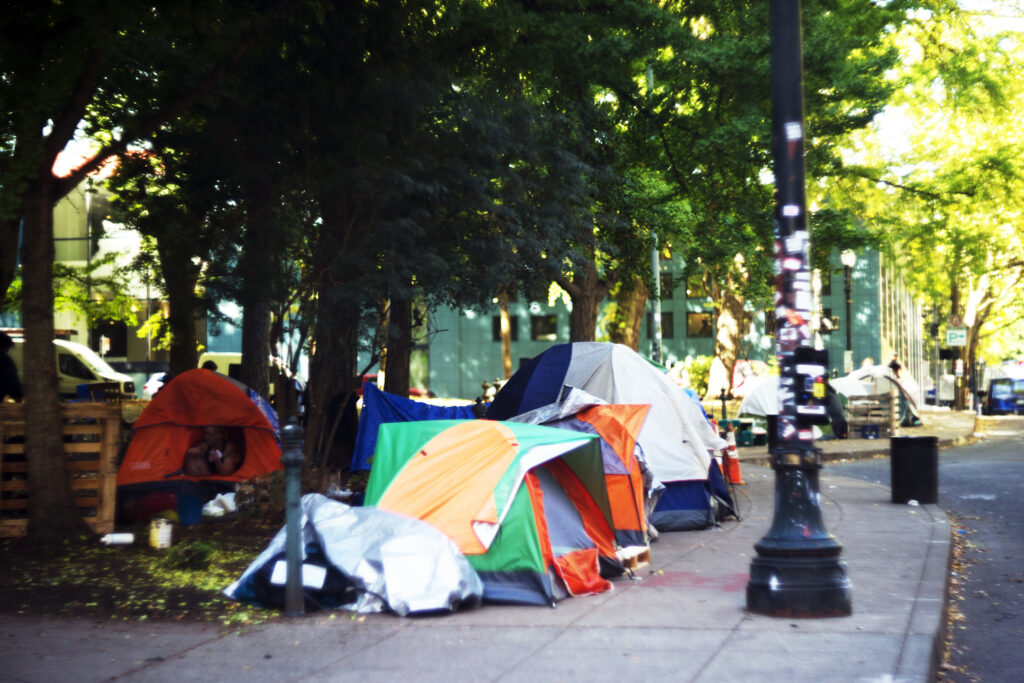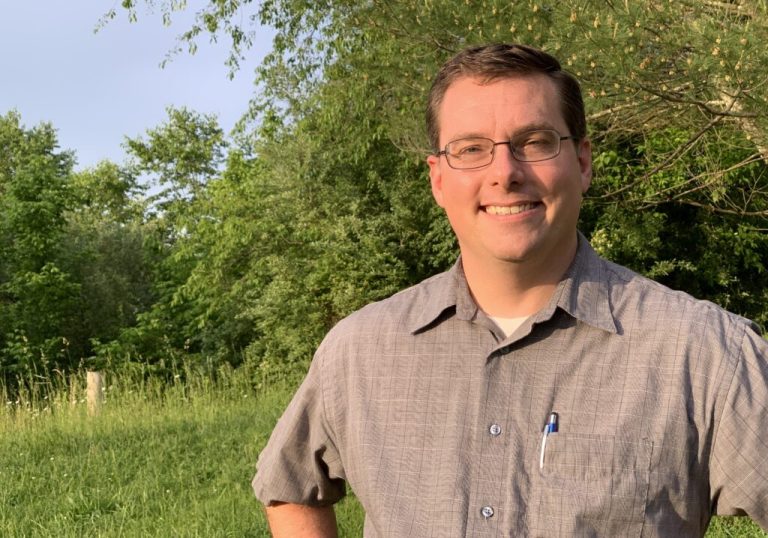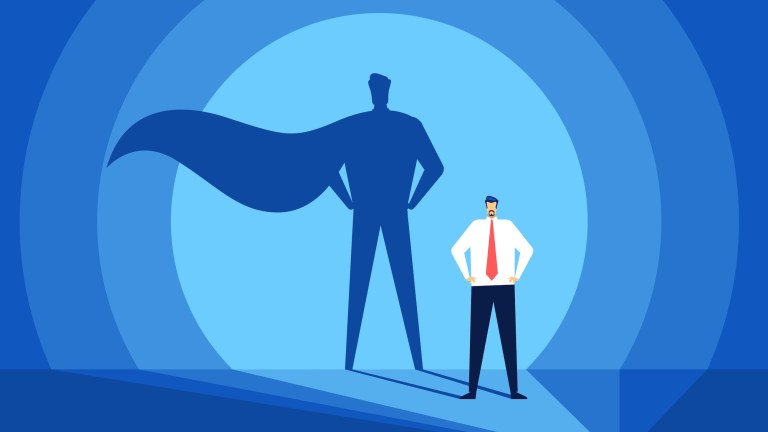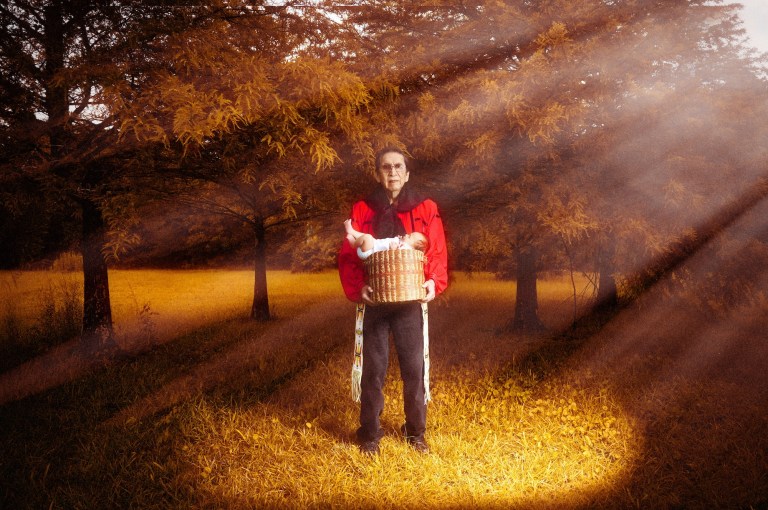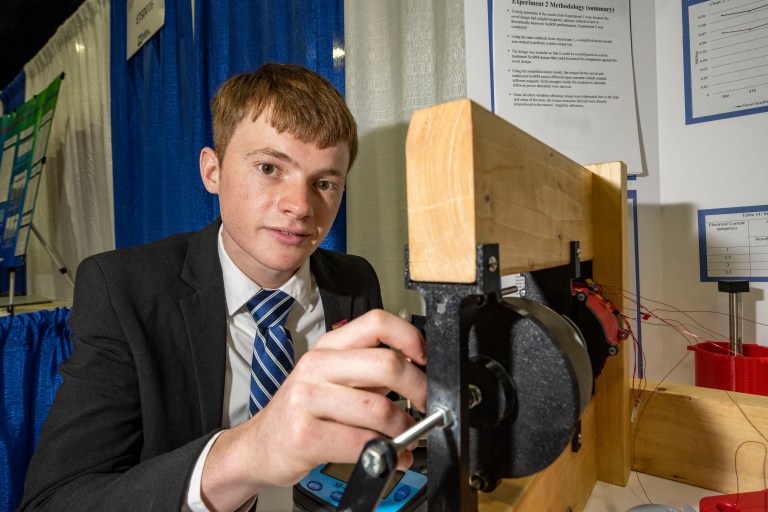What comes to mind when you hear the word neighbor? For most Americans, it’s the person who occupies the apartment next door or the house across the sheet. Conversely, the individuals outside our homes, those who don’t have shelter of their own, may not even register as belonging to our communities — as being, in fact, our neighbors. To social entrepreneur Kevin F. Adler, that perspective is one we desperately need to shift.
Adler is the mastermind behind Miracle Messages, a San Francisco-based nonprofit that assists unhoused people in rebuilding their social support systems and financial security. He launched the organization in 2014 with the conviction that addressing relational poverty, or the lack of supportive relationships, is key to improving the lives of people experiencing homelessness.
He’s also the co-author of the upcoming book When We Walk By, out November 7. In it, Adler and Donald W. Burnes, founder of The Center for Housing and Homelessness Research, argue that two primary issues need addressing in the quest to help unhoused people: broken systems and our own humanity, with the latter directly affecting the former.

“One of the reasons that we’ve tolerated so many broken systems for so long is because I don’t think we have looked at our neighbors experiencing homelessness as our neighbors en masse,” Adler told Nice News, noting that meaningful change is unlikely to take place “until we get to know people as people and hear their stories and actually care about them.”
The 38-year-old is adept at looking at this familiar issue through unfamiliar lenses. For example, as more and more encampments pop up on city sidewalks, it’s easy to question why so many people are experiencing homelessness. Yet Adler points out that amid ultra-high rents, interest rates, and inflation, no one seems to be asking, “Why aren’t more people experiencing homelessness?”
His answer comes down to that concept of relational poverty: “The theory that we’ve come up with in the book and have some evidence to try to support is that family, friends, community, church, synagogue, mosque, informal economy [are] making up the difference right now from tens of millions of people who are one paycheck away, barely able to get by, from them becoming homeless,” he said.

Adler’s professional and philanthropic endeavors stem from a personal relationship of his own. For over 30 years, his late uncle Mark — to whom When We Walk By is dedicated — bounced between shelters and the street, often disappearing for months on end. In his decades of housing instability, however, he almost never failed to send his beloved nephew a birthday card.
RELATED: Oklahoma Nonprofit Offers Tiny Homes to Unhoused Young Adults
Mark struggled with mental health issues, but Adler is quick to note that for countless others, it’s external forces — lost jobs, aging out of foster care, natural disasters, and medical emergencies, for example — that lead to homelessness. And there is harm, he says, in referencing individuals with vastly different circumstances, backgrounds, ethnicities, and ages solely by the one thing they all lack: housing.
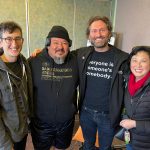
“[We’re] willing to group the mother with a child who’s escaping a domestic violence situation to someone who has severe mental health issues that are untreated, to LGBTQ youth leaving their family to try to get by, to someone who’s lost their job, to someone who’s coming out of the criminal justice system,” he explained. “All of that in popular discourse is kind of grouped together as ‘the homeless.’”
That tendency leads us to view those experiencing homelessness “as problems to be solved rather than as people to be loved,” Adler says. And that in turn results in an unhelpful, one-size-fits-all course of action.
With Miracle Messages, Adler and his team take a multifaceted approach. In addition to pairing unhoused people with volunteer phone buddies – or “Miracle Friends” — for weekly calls and texts, the nonprofit offers family reunification services, helping to digitally locate long-lost loved ones. And in 2020, it launched one of the first basic income pilots for unhoused people in the United States, providing $500 a month for six months to 14 people, no questions asked. Now, it’s expanded to a $2.1 million dollar enterprise with the help of private donors, Google.org, and the University of Southern California.
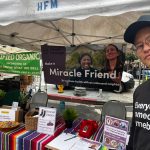
Adler hopes his When We Walk By will serve as one of the first trade books — one intended for a general audience — on homelessness. He suggests that the ideas and solutions within it are not silver bullets, but rather ways to reshape the paradigm for the better.
“It’s not to say that now we just need to be ‘kumbaya, love our neighbors’ and all the problems are going to be solved,” he explained. “But what I would say is folks who, even if they have severe mental health issues or severe substance abuse issues, having family or friends or loved ones or someone who goes to bed at night and wakes up in the morning thinking of their well-being that isn’t a government caseworker, it gives them that much better a shot at making it, at getting off the streets.”
Interested in becoming a phone buddy or donating to Miracle Messages? Learn how to get involved.
